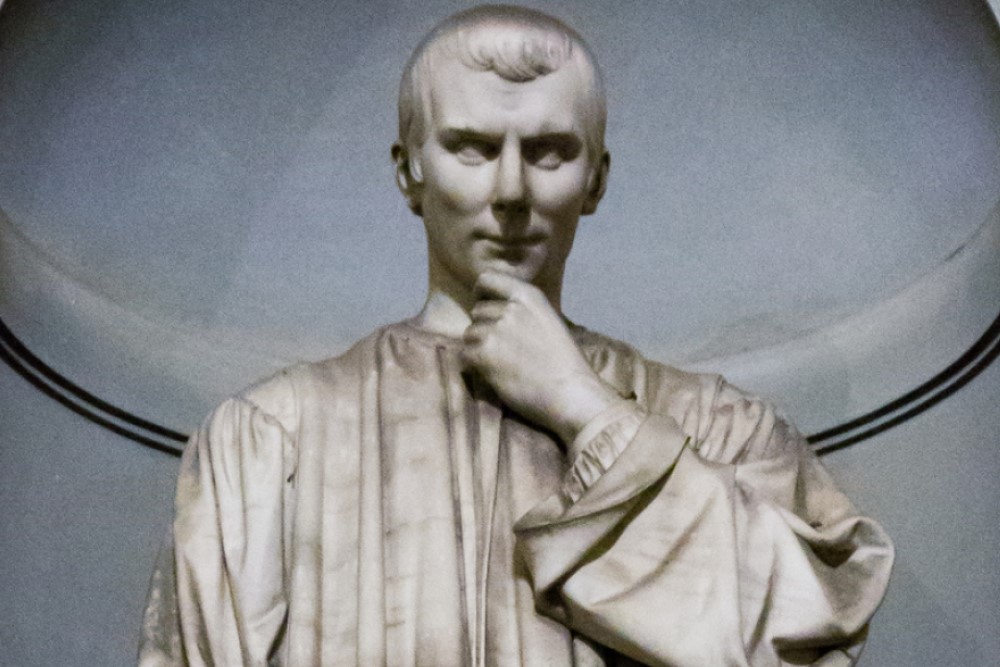The Politically Great and the Morally Good

It wouldn’t be beyond the pale to assert that we’re currently having a collective crisis of faith regarding many of our world leaders and the political institutions they represent. Not only do they appear to be ineffectual in the face of emerging challenges – climate change, economic collapse, pandemics, and rising fascism, to pick a few – but several also seem to be fundamentally untrustworthy and, if one wants to be provocative, downright immoral.
For example, in the U.K., in the past year alone, several high ranking cabinet ministers, including the Prime Minister himself, have been accused of lying, bullying, adultery, cronyism, corruption, and the questionable appropriation of public funds for personal use. Abuses of power like these, which extend far beyond the U.K.’s shores, have even been identified by the Centre for the Future of Democracy’s recent report as one of the critical causes for the broader decreased faith in democracy in many of its former bastions.
Now concerns regarding politicians acting less than virtuously are nothing new. In the 44 B.C. treatise De Officiis, the Roman statesman Cicero wrote that there is “no vice more offensive than avarice, especially in men who stand foremost and hold the helm of state. For to exploit the state for selfish profit is not only immoral; it is criminal, infamous.” Indeed, concern regarding politicians’ dubious dealings have been common throughout history.
Cicero’s demand that politicians not exploit the state is pretty ethically uncontroversial. However, there is a more nuanced question here than should politicians do their job morally. The question of the personal moral character of politicians and what this means for their suitability as statesmen is far more complex. Does it matter to us if a world leader acts immorally in private when they are good at their job of being a politician? That is, if they lead the country, protect their citizens, and communicate clearly with those they’re responsible for/to, then why should we care about their extracurricular ethical deficiencies?
To illustrate, let’s use a thought experiment. Imagine an election has been called to decide your country’s next leader. Candidate A is known to be morally admirable – they recycle, don’t cheat on their partner, give generously to charity, don’t lie, etc. On the other hand, Candidate B does the opposite – they lie, cheat, throw all their rubbish in the same bin, hoard their wealth, etc. After a brutal campaign, both candidates demonstrate their suitability for the job in equal measure. With nearly all the votes counted, there’s a tie. Yours is the only vote left to be cast. As such, you get to decide who the newest world leader is. Whom do you pick, and why?
On the one hand, you might think it’s obvious – you pick Candidate A as they are objectively better than Candidate B. In addition to doing the job, Candidate A is also a good person, and that’s valuable. After all, immorality is, by definition, bad (we might want to value it as -1). This undesirability is evident compared to the amoral (which we could value at 0) and even more so when compared to the morally good (which we can value as +1). Thus, if you end up with an effective leader regardless, why would you pick Candidate B, who comes with a negative value (-1), when you could instead have Candidate A, who comes with a positive value (+1). In other words, why settle for less when you can have more?
Complementing this self-centered approach, those favoring the morally virtuous leader may also ground their reasoning in justice. We typically think that the immoral shouldn’t succeed at the expense of the moral; there is something right in rewarding those who act morally and punishing, or at least not rewarding, those who don’t. To actively choose Candidate B over Candidate A would fly in the face of this sense of justice. It would indicate that individual integrity is divisible from the mainstay of professional ethics. That personal moral failing can be disregarded in decisions about who should(n’t) be rewarded in professional capacities. In short, when all other things are equal, justice demands that bad people shouldn’t succeed and good people should. Thus, Candidate A is the just choice.
On the other hand, it’s plausible to argue in favor of, or at least of not discounting, Candidate B simply because they possess some personal moral failings. After all, who among us is entirely virtuous?
As we’ve already established, the two candidates are equally qualified. Thus, we have to ask why it matters that one acts in a morally dubious manner and the other doesn’t. Could it be that we’re acting upon some ill-formed or reactionary intuition? After all, we don’t think in these terms when we consider a person’s suitability for other jobs or tasks. For example, if you need surgery, the idea that you would pick from a list of equally qualified surgeons based on whether one was faithful to their partner would seem bizarre. In this situation, what matters is that person’s capacity to fulfill the role’s requirements. Anything outside that scope is inconsequential. So, just as we would think it insignificant that a capable surgeon acts immorally when not on-call, we might feel the same about a world leader – provided that they can undertake the task of effectively leading the nation, all other considerations should fall to the wayside.
As with many thought experiments, you might consider this one’s parameters to be too restrictive or even implausible. The pessimistic (or some may say realistic) of you may argue that the very qualities that make one a practical head of state are the same qualities that would tarnish one’s personal ethical record. As noted in Machiavelli’s The Prince:
“And again, he need not make himself uneasy at incurring a reproach for those vices without which the state can only be saved with difficulty, for if everything is considered carefully, it will be found that something which looks like virtue, if followed, would be his ruin; whilst something else, which looks like vice, yet followed brings him security and prosperity.”
For Machiavelli, those qualities which make someone a good person are not the same as those that make them a great leader. Indeed, often those qualities may impede one’s ability to do their job as a politician. That, at the end of the day, the requirements of statehood demand that one lie, deceive, subjugate, battle, and even kill others – things that we would otherwise decry as vices and sins if not for the fact that the role of world leader required them.
Where does this leave us then? Do politicians need to be moral, and are we right in expecting them to be? While it may seem obvious to say yes – to decry the idea of an immoral leader – we have to be aware that we may be moralizing in a way that we wouldn’t do for people in other roles. Furthermore, we might even be doing our country a disservice by trying to install a leader who, under any other circumstance, might be considered a good person.




